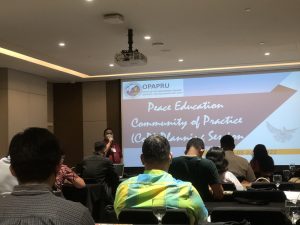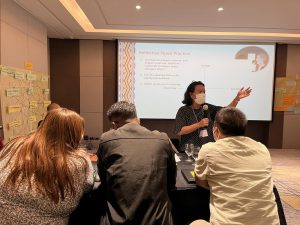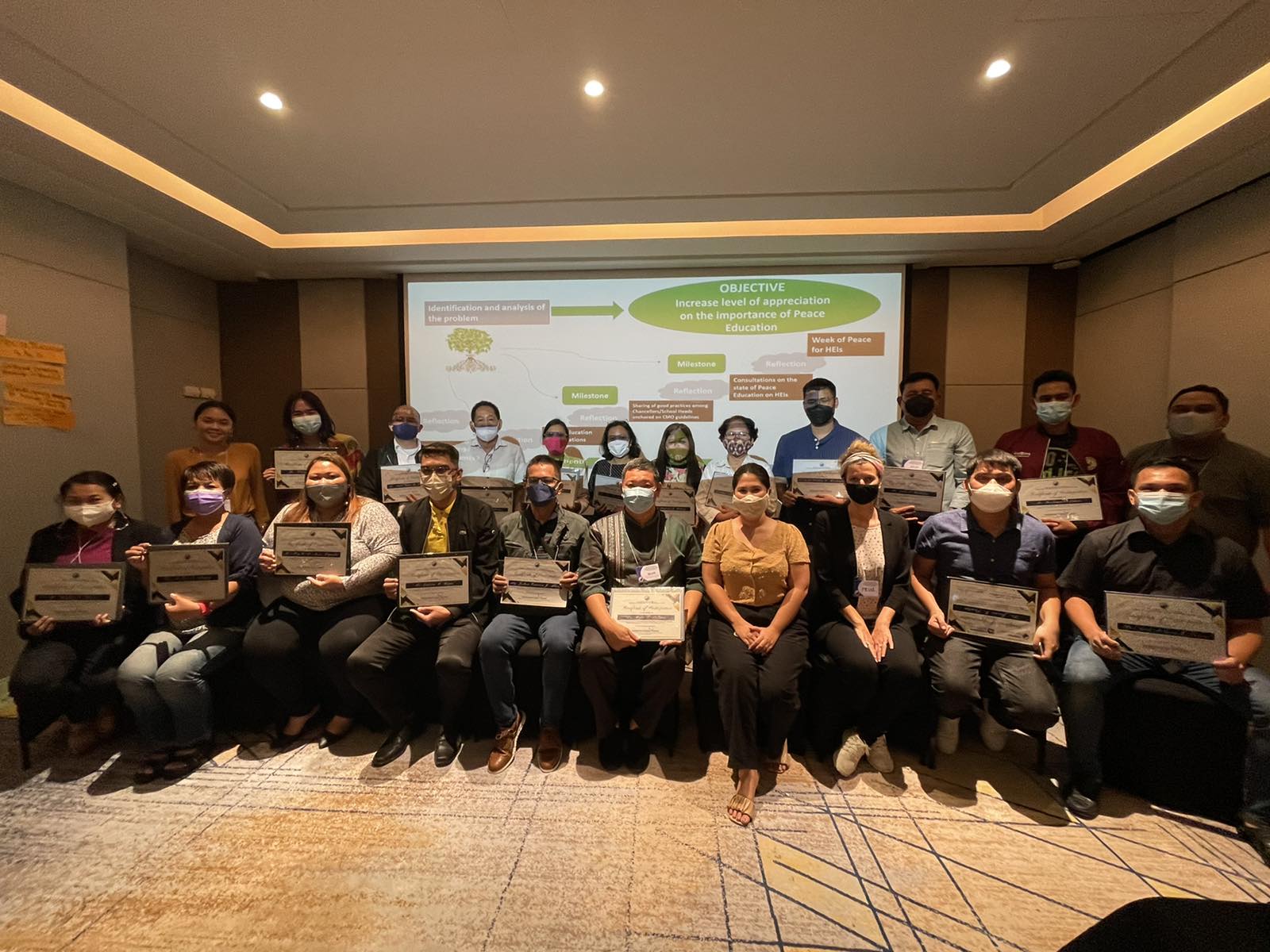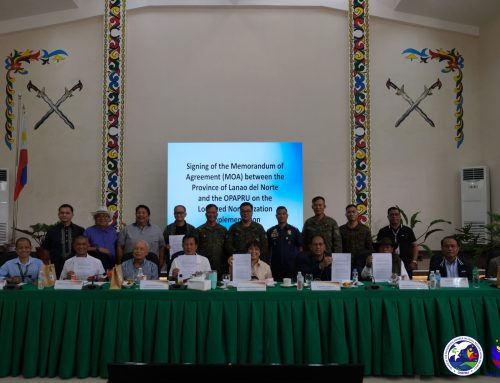DAVAO CITY – As part of its efforts to promote the culture of peace among higher education institutions (HEIs) in the country, the Office of the Presidential Adviser on Peace, Reconciliation and Unity (OPAPRU) conducted a Community of Practice (CoP) planning session here in this city.
Spearheaded by OPAPRU’s Knowledge Management and Peace Institute Service (KMPIS) and Social Healing and Peacebuilding Office (SHAPEO), the planning workshop was attended by representatives from the Commission on Higher Education, OPAPRU, GIZ Philippines and 15 peace-promoting HEIs in the Philippines.
Held from June 5 to 8, the activity is in line with OPAPRU’s peace constituency-building efforts by providing members of the academic community a space for evidence-based conversations on peace, conflict and security concerns.
Dr. Jovar Pantao, director of the Mindanao State University – General Santos City – Institute of Peace and Development in Mindanao (MSU-GSC – IPDM), facilitated the workshop sessions which highlighted key problems affecting the implementation of peace education in HEIs (Conflict Profiling).
Pantao also discussed key drivers of problems affecting the implementation of peace education (Conflict Analysis), and the effects of these key drivers on existing gender norms and roles (Gender Sensitive Analysis of the Problems).
The planning sessions utilized the Reflective Peace Practice as a tool in analyzing the experiences and inputs from the participants who asked to map out the peace-building initiatives being carried out by their respective institutions.
The participants also came up with ways forward and an action plan framework which offers recommendations to HEIs, CHED and OPAPRU on how to address the challenges in institutionalizing peace education initiatives in the higher education sector.
Dr. Rejie Palmos, director of the West Visayas State University – Center for Peace Education (WVSU – CPE), one of the workshop participants, emphasized the importance of cultivating inner peace among educators.
“In the many content areas of peace education, we will always have to go back to the cultivation of inner peace. No matter how good we are in delivering the content, the medium will always speak the message. You cannot share what you do not own,” Palmos noted.
For her part, Director Mae Ballena, head of KMPIS, thanked the representatives of the participating agencies and HEIs for joining in the workshop, as she underscored the key role of the academe in building a culture of peace.
“Mainstreaming Peace Education is really a whole of society effort and the more people we can engage to join us in this cause, the more effective we will be,” Ballena said.###












